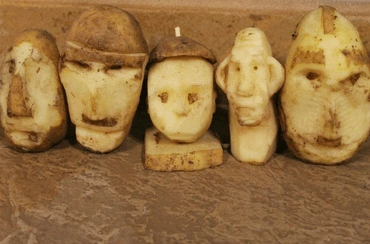7859. 'Its head over its legs and over its middle' means from what is inmost to what is external. This is clear from the meaning of 'the head', when said to be 'over the head and middle', as what is inmost, for the head is on top, and what is on top is in the spiritual sense what is inmost, 2148, 3084, 4599, 5146 (for the meaning of 'the head' as the interiors and 'the body' as the exteriors, see 6436); from the meaning of 'the legs' as exteriors, for in relation to the head the legs are lower, and just as higher parts mean more internal ones, so lower parts mean more external ones; and from the meaning of 'the middle' as the parts that are lower still, as those of the belly and intestines are. The command that they were to roast the head over the legs and over the middle represented the necessity for interiors and exteriors to be combined, that is, to act as one. The interiors are what constitute the internal man, the exteriors what constitute the external man; or, the interiors are what constitute the spiritual man, while the exteriors are what constitute the natural man. These must be combined, that is, act as one, if a person is to have the Lord's kingdom within him. They are separated when the natural or external man acts differently from what the spiritual or internal man desires. These considerations go to prove what was meant by the regulation that the Passover lamb should be roasted with fire, the head over the legs and middle. 'The middle' is used to mean the even more external part of the natural, which is the level of the senses. Anyone may see that a Divine arcanum is present within these commands, for the Passover lamb was the most holy thing in that Church. But that holy arcanum is indiscernible except through a spiritual understanding, such as is presented here, of the subject matter involved and the words used.







